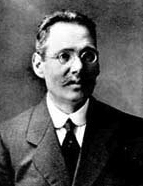

David Lopes was born on 17 April 1867 in the village of Moita Fundeira, in the parish of Nesperal, in the municipality of Sertã. He was the son of José Amaral Lopes and Inês de Melo. With his older sister living in Lisbon, David Lopes left his native village to attend the Liceu Central de Lisboa (later renamed Passos Manuel), graduating in 1888. With a family that supported him throughout his career, the young student dedicated Chronica dos Reis de Bisnaga (1897) to his uncle Simão José da Silva Lopes, “in testimony of gratitude”.
It was after leaving high school that his vocation as a historian and Arabist was defined. In the Second Class Bulletin of the Lisbon Academy of Sciences, in The Arabs in the works of Alexandre Herculano (1910), he wrote: “The following pages are a tribute to Alexandre Herculano (...). The author believes that this is the best way to repay the great historian for his debt of gratitude: because it was reading Eurico, Lendas e Narrativas and, above all, História de Portugal that led him abroad to study Arabic.” Thus, from 1889 to 1892, David Lopes attended the École Nationale de Langues Orientales Vivantes in Paris, considered the best school for Oriental studies and research into the languages and civilisations of Asia and Africa, where some famous professors taught and which housed a rich specialised library. He also attended the École Pratique des Hautes Études in Paris, known as a centre of excellence in historical and philological research. In fact, David Lopes’ stay in France allowed him to study classical and dialectal Arabic and to come into contact with the sources and methods of knowledge and innovation that were developing throughout Europe at the time. It was during this period that he established links with leading figures in the sciences, with whom he came into regular contact, and many of whom remained close friends until the end of his long life as a scholar.
This work is financed by national funds through FCT - Foundation for Science and Technology, I.P, in the scope of the projects UIDB/04311/2020 and UIDP/04311/2020.
